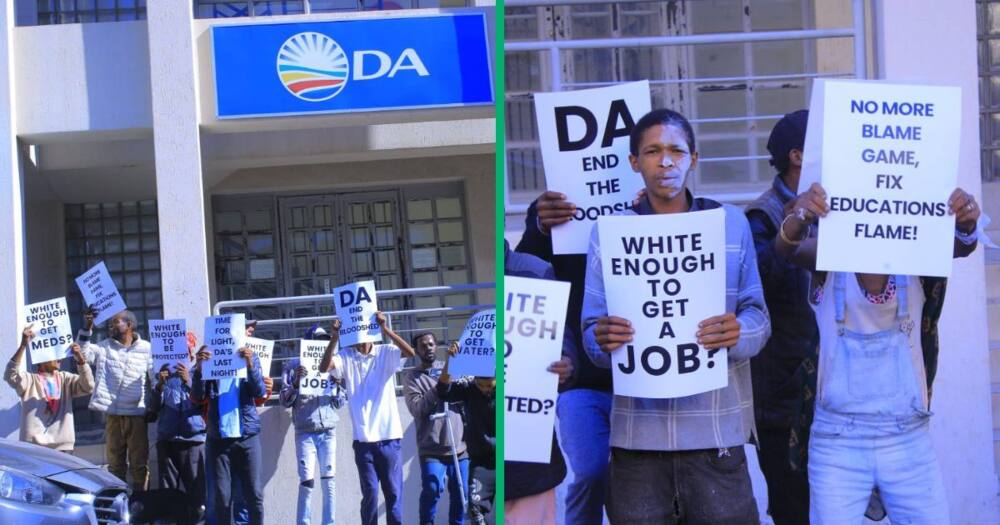Democratic Alliance Gets Backlash in Western Cape As Elections Loom
With elections just a month away, a powerful demonstration has significantly spotlighted the waning grasp of the Democratic Alliance (DA) over the Western Cape, hinting at a broader shift in political loyalties across South Africa. This timely rally, staged near the DA's offices in Cape Town, served as a poignant prelude to what may be a seismic shift in the regional political landscape.
Unemployed, disabled, and other marginalised groups within the population finally had enough of the DA's favouritism towards the privileged white minority and the Western Cape political system, where public services are provided only to those with wealth and the right racial background.

Source: UGC
Since the DA has been at the helm in the Western Cape, its governance has been characterised by controversies and criticisms. Promises of reform and better governance led by the DA initially sparked hopes for a dynamic shift away from the ANC. Over time, these hopes have been dampened by persistent challenges and unmet expectations, culminating in public expressions of dissatisfaction.
At the heart of the rally, protestors employed striking visuals to voice their discontent: faces painted white as a stark protest against perceived racial disparities under the DA's rule. This dramatic statement highlighted their critique that benefits under the current government have disproportionately favoured a white minority, neglecting the broader, more diverse populace. The rallying cry "Not White Enough" resonated deeply, encapsulating a sentiment of exclusion and calling for a more inclusive governance approach. Twitter (now X) also mentioned this protest, with the hashtag #NotWhiteEnough trending as users shared their dreadful experiences of living in DA-led municipalities.
The demonstrators did not shy away from articulating specific grievances that have marred the DA's tenure. Prominent among the issues raised were the alarmingly high crime rates in Cape Town, which has emerged as one of the world's top three most violent cities. The startling statistic of over 3,000 murders in 2023 alone has heightened concerns about safety and security under the DA’s watch.
Moreover, the protest signs waved at the rally brought attention to a slew of other critical issues: rampant unemployment, pervasive racism, recurrent power blackouts (load shedding), and ongoing water shortages, each adding layers to the narrative of dissatisfaction.
This vibrant and vociferous protest underscores a critical juncture for the DA as it faces impending elections. The palpable decline in support within the Western Cape suggests a possible erosion of confidence in the party’s ability to govern effectively. The issues brought to light are not merely local grievances but resonate on a national level, potentially influencing the political currents across South Africa.
In summary, the demonstration near the DA's offices is more than a local event; it is a bellwether for the party's fortunes both in the Western Cape and possibly nationwide. The challenges highlighted by the protestors reflect deep-seated issues that need urgent addressing. This profound public dissatisfaction suggests that the DA's longstanding grip on power in the region might be loosening.
With the election just around the corner, this declining support could very well signal the end of the road for the DA's dominance in South African politics, especially if the party fails to address the electorate's growing concerns and demands for inclusive, effective governance.
Written by Sipho Khumalo
Source: Briefly News
